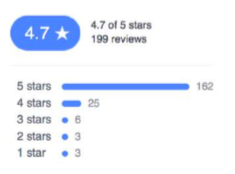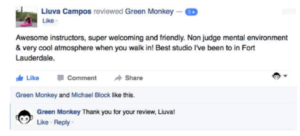Maintaining a positive online reputation is key for your brand to succeed! Did you know that brands with a strong and positive online reputation are capable of driving more consumers?
At Miami Social Marketing, our main focus is detecting a possible social media crisis that may damage your brand's reputation. The World Wide Web has millions of sites where your brand can be spoken about. To manage every single comment is almost impossible. For this reason, we focus on monitoring the popular social media sites such as Facebook, Twitter, Yelp, Tripadvisor and Urbanspoon (mainly used for restaurants).
To determine your brand's online reputation, a social media manager must answer the following questions:
Do people talk about the brand on the internet? If so, does the brand create “buzz?” Are the comments mostly positive or negative?
And most importantly,
What is the brand’s current reputation on social media?


Here is a list of tactics and tools that will help your brand maintain a positive online reputation:
- Invest time in creating a positive online reputation.
- Create (and share) good content relevant to the brand.
- Listen, manage and measure all comments on all social media sites.
- Monitor the brand’s social media sites constantly. Pay closer attention to Facebook, Twitter, Yelp and Tripadvisor.
- Join the conversation! Always respond to all comments and reviews. Customers want to be acknowledged by the brand. The goal is to make them feel that their opinion matters!
- Warning - Do not feed the troll! A troll is a user that wants to destroy your brand's reputation.
How to properly respond to your customers reviews? Here is a list of great examples:

When the review is positive, the social media manager must “like” the review and acknowledge the customer for taking their time to write the review. For example:
“Thank you Michael – Hope you have a wonderful evening!”
“Thank you for your review Tom – Hope you enjoyed your meal!”
“Thank you John - Hope your next visit is even better!”
When the review is negative, the social media manager should address the issue and maintain the brand’s reputation.

For example:
“Dear Francisco, Our apologies for your negative experience at one of our locations. Our customers’ reviews are always helpful to improve the quality of services we offer.”
“Drew - I am sorry to hear your experience was not ideal. We believe our customers should have the best customer service. We hope you will visit us again soon and give us another opportunity.”
“We are very sorry you had a negative experience David – We strive to create the best possible experience for our customers. Please provide us with your best email address so we can contact you. Thank you!”
When writing to the customer, the message should be personalized to the user. For example, writing the user’s name, providing answers to specific questions etc. The responses shouldn’t be perceived as automated messages or spam. The goal is to acquire the reviewers contact information to take the conversation offline. For example:
“Hello Maria - Thank you for taking the time to share your experience with us. We'd like to have our studio manager follow up with you directly to make it right. Will you please send us your best email via private message? Thank you.”
